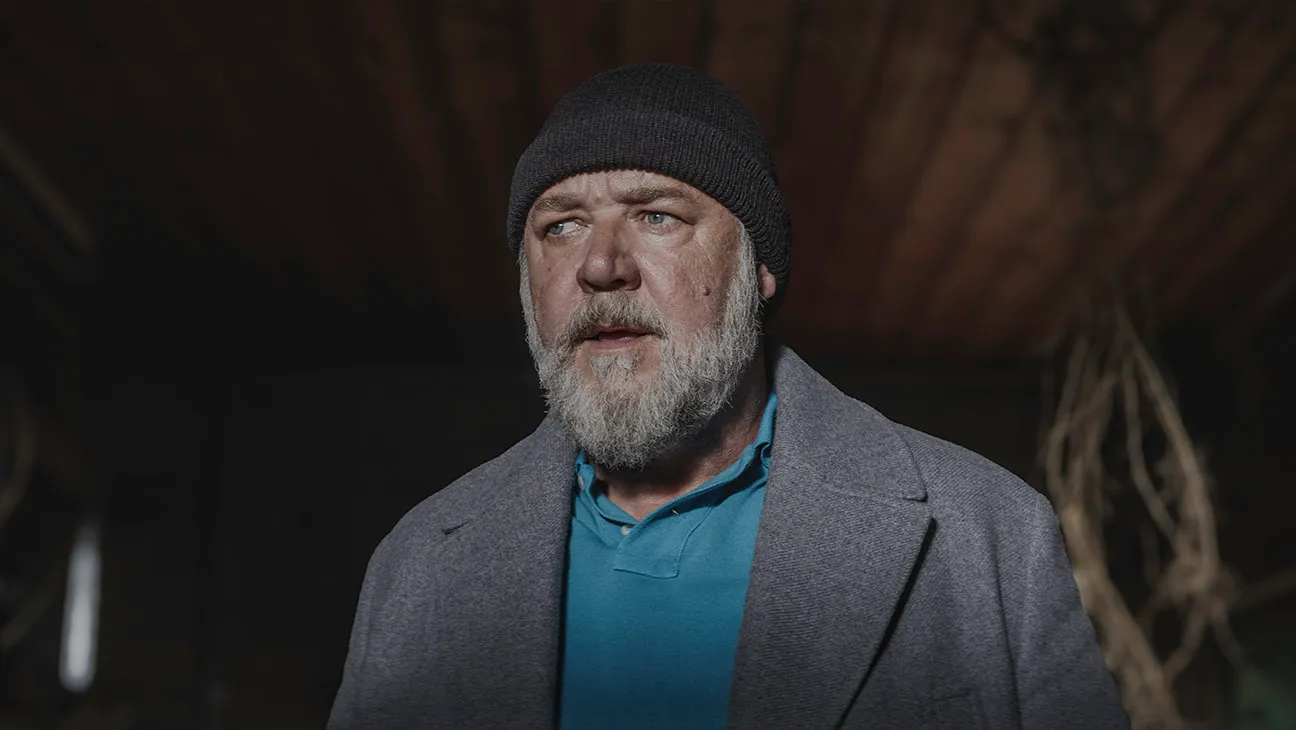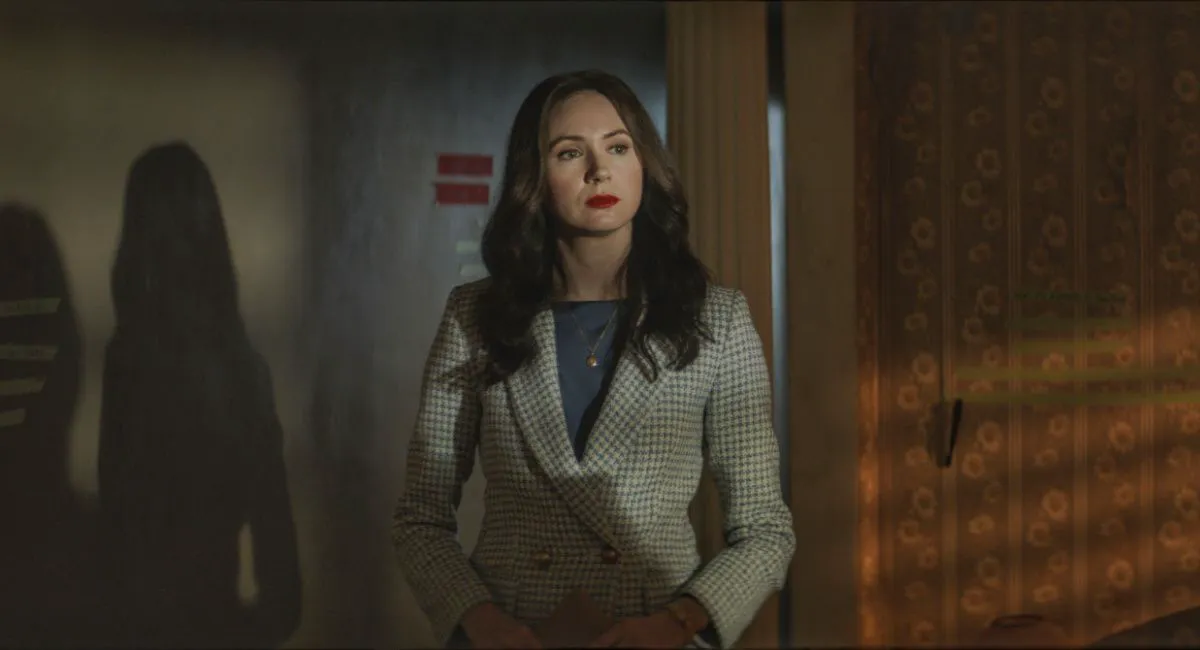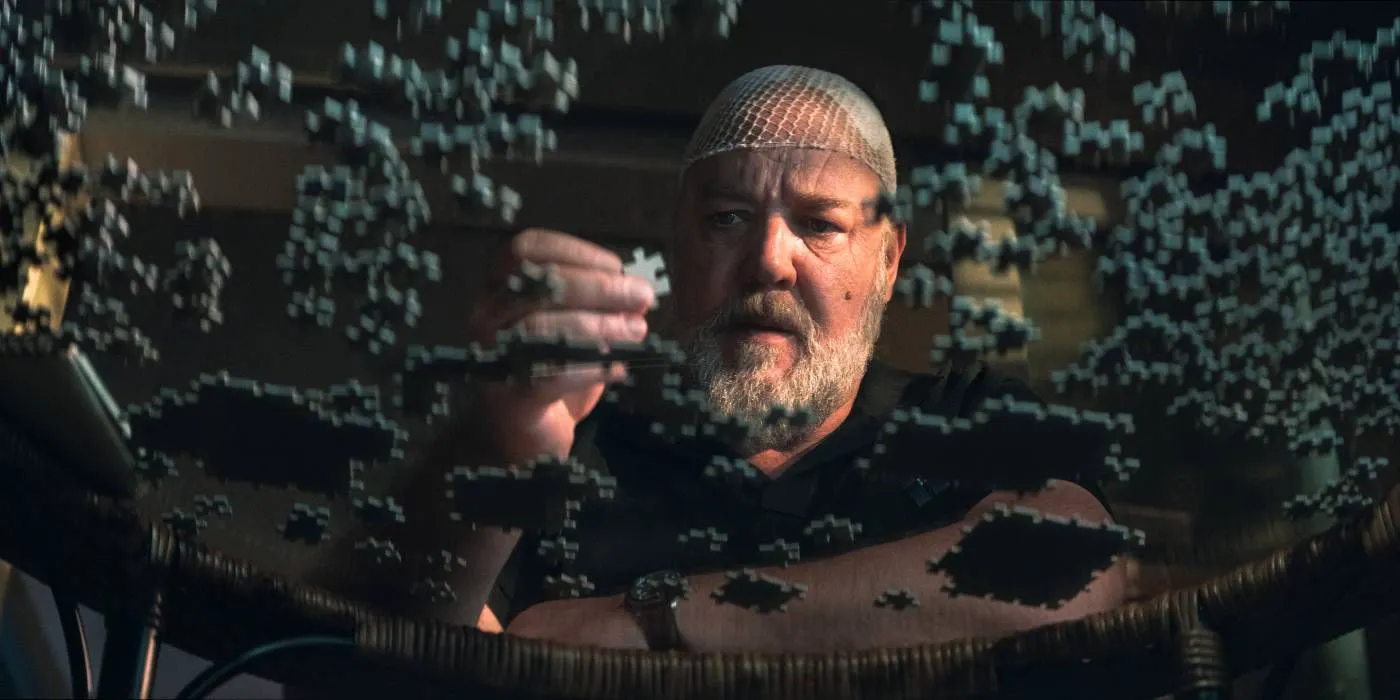Sleeping Dogs: A Detective Story Unearths Buried Truths
Roy Freeman (Russell Crowe), a former homicide detective grappling with Alzheimer’s disease, is drawn back into an old case after encountering Isaac Samuel (Pacharo Mzembe), a death row inmate. The case revolves around the murder of university professor Joseph Wieder (Marton Csokas), a crime Freeman investigated years ago. As he delves deeper, he reads an autobiographical manuscript by journalist Richard Flynn, a close acquaintance of Wieder, which casts doubt on Samuel’s guilt.

Russell Crowe as Roy Freeman in “Sleeping Dogs”
From Novel to Screen: A Twisting Adaptation
The allure of captivating narratives often leads filmmakers to literary bestsellers. “Sleeping Dogs” is no exception. Based on the novel “The Book of Mirrors” by Romanian author Eugen Ovidiu Chirovici, hailed as a “brilliant literary debut of 2017,” the film adaptation is directed by Adam Cooper, a seasoned screenwriter known for his diverse portfolio, ranging from teen comedies like “New York Minute” and “Accepted” to the biblical drama series “Of Kings and Prophets.”
However, the film takes significant liberties with the source material, potentially disappointing fans of the novel. Peter Katz, a key character in the book, is absent, while former detective Roy Freeman, a figure from the novel’s third act, takes center stage. Screenwriters Adam Cooper and Bill Collage have assigned Freeman some of Katz’s original plot functions.

Karen Gillan in “Sleeping Dogs”
A Detective’s Struggle with Memory and Justice
Adam Cooper’s film initially unfolds as a poignant drama, highlighting Roy Freeman’s battle with Alzheimer’s, which has erased much of his past. The director borrows elements from Christopher Nolan’s groundbreaking thriller “Memento,” using them to depict Freeman’s daily struggles and evoke empathy for the character. For instance, Crowe’s character, like the protagonist in “Memento,” relies on notes to himself to retain crucial information. In the film’s early stages, Russell Crowe seems somewhat out of place, almost reminiscent of Arnold Schwarzenegger’s character in “Last Action Hero” finding himself in a Shakespearean tragedy. Crowe’s portrayal of Freeman feels detached and phlegmatic. The character lacks the depth of emotional turmoil needed to truly connect with the audience and make them feel his struggles. Crowe excels at portraying individuals in extreme situations, rather than suffering characters.
A Case Rekindled: Finding Purpose in the Past
However, Russell Crowe’s performance gains momentum as the film transitions from a drama about illness to a detective investigation. The emergence of new details in the old case, which challenge the guilt of the man convicted a decade ago, reignites Roy Freeman’s purpose. The film itself moves away from being a pale imitation of Nolan’s “Memento” and evolves into a thriller about the pursuit of justice. Freeman, a forgotten retiree who has lost his sense of purpose, is given a chance to feel needed again and potentially correct a past mistake that could lead to Isaac Samuel’s execution.
Among the supporting characters, Jimmy Remis, Roy Freeman’s former partner, stands out. Played by Scottish actor Tommy Flanagan, Remis brings a natural presence to the screen and forms an excellent duo with Russell Crowe. This is not surprising, as the actors previously worked together on “Gladiator” and have a strong rapport. Jimmy Remis is the antithesis of the apathetic Freeman. Flanagan portrays his character as an expressive individual who can easily switch from heartfelt conversations with an old friend to emotional outbursts. The true motives behind his actions remain unclear until the very end. Adam Cooper skillfully plays with the audience’s assumptions, leaving them to wonder if Freeman’s friend and partner is involved in Professor Wieder’s brutal murder.

Russell Crowe as Roy Freeman in “Sleeping Dogs”
Unraveling the Truth: A Complex Narrative
The director effectively manages the complex structure of Chirovici’s novel. Apart from the drawn-out exposition, which struggles to convincingly portray the daily challenges of someone with Alzheimer’s, the film largely consists of a combination of present-day scenes and flashbacks depicting events from a decade ago. The director divides the narrative into chapters, each focusing on one of the potential suspects. The protagonist’s battle with his progressive illness and the gradual clarification of his memory enhance the detective intrigue. Just as overcoming Alzheimer’s is difficult, so too is finding the truth in a seemingly closed case. In light of discussions about the necessity of capital punishment, Cooper’s film provides an additional argument against it. Former police officer Freeman himself repeatedly uses the argument that an unjustly accused man will be executed if uncooperative witnesses do not tell the truth.
A Genre Debut with Familiar Echoes
The director’s attempts to imbue his film with the characteristics of a philosophical drama about the ever-elusive truth (as indicated by the metaphorical title) are not always successful. The film sometimes lacks a distinct visual style, as the director actively draws on the visual achievements of other filmmakers, from Christopher Nolan and his film “Memento” to Florian Zeller with the Oscar-winning “The Father.” However, as a genre piece, Adam Cooper’s directorial debut is quite competent, keeping the audience in suspense until the very end, presenting one character after another who had reasons to kill Professor Wieder.
The resolution of the intricately woven web of intrigue is not entirely original, but it fundamentally changes the established perceptions of the motives behind the actions of many characters, prompting further reflection on the dilemma of the infallibility of truth. One should not hastily judge others, as the suddenly revealed truth may not be what it seemed based on circumstantial evidence.